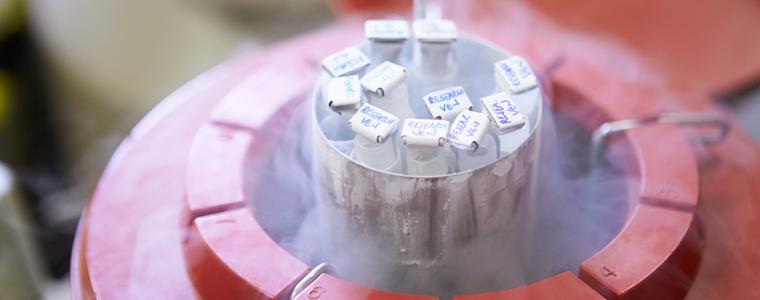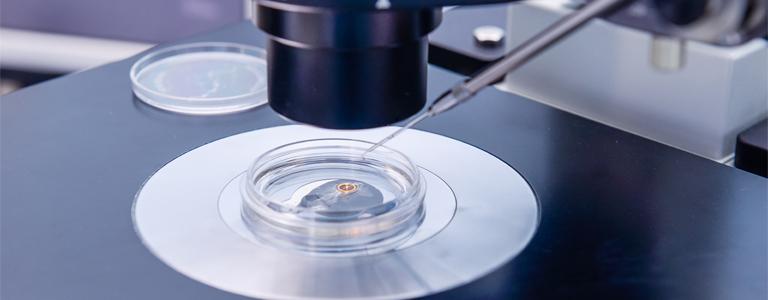Intra-uterine insemination (IUI)
23-02-2020 09:36 PM
What is IUI treatment?
IUI treatment uses a catheter to put washed, prepared sperm at the top of the cavity of the womb around the time of ovulation to increase the chance of getting pregnant. IUI is more successful if it is done in combination with daily FSH (follicle stimulating hormone) injections to stimulate egg production and accurate timing of insemination to coincide with egg release.
A combination of tablets and injections are used to stimulate the woman’s ovaries to produce one or two eggs using very low doses of FSH injections. Once one or two follicles (fluid-filled sacs) have reached 16- 18mm across, the eggs inside the follicle will be mature and egg release (ovulation) is triggered with a different injection. Insemination takes place 36 – 40 hours after the trigger injection.
Why has IUI been recommended?
IUI is one of the assisted conception treatments that is used to treat ovulation disorders, unexplained, or mild male factor infertility. IUI is only recommended if your fallopian tubes are normal and 5 million or more forward-moving sperm are present after the sperm preparation process.
IUI is less invasive than IVF and currently forms part of the pathway for some couples before moving on to IVF treatment.
What are chances of getting pregnant with IUI?
The chance of getting pregnant with IUI is approximately 15-25% per cycle depending on specific infertility cause. This is lower than the chance of pregnancy with IVF which is approximately 40-70%; however IUI does not involve an egg collection operation so is less invasive than IVF.
Are there any risks with IUI treatment?
The main risk is the risk of multiple pregnancy. Approximately one in eight to ten IUI pregnancies is a multiple pregnancy. Twin pregnancies are six times more likely to have complications such as premature delivery, low birth weight and cerebral palsy than a singleton pregnancy. If more than two follicles develop there is a risk of triplets or more. These are very high risk pregnancies and therefore it is likely that the treatment will be cancelled in this case. In a small number of cases you may be offered IVF treatment rather than cancelling the cycle.
There is also the risk of ovarian hyperstimulation syndrome where large numbers of follicles develop and the ovaries enlarge. This condition is extremely rare in IUI treatment as such low doses of FSH injections are used.
What appointments will you need during the course of IUI treatment?
After your consultation to discuss the reasons for suggesting IUI and explaining in detail how IUI is done, its benefits and risk and the chance of success, you will have a planning appointment with the fertility clinic. At this appointment you will be given your prescription, be instructed to do the injections and be given the consent forms to complete. Any additional tests, including screening for hepatitis and HIV, will be arranged at this meeting.
What additional investigations are needed before IUI?
The law relating to assisted conception states that all couples must be screened
for hepatitis B, syphilis and HIV within six months. Additional bloods tests may also be necessary and the doctor will discuss this with you. If you test positive for any of these viruses you may be referred onto a specialist for treatment for the infection. Your fertility treatment may
be transferred to another centre with the capability of dealing with patients carrying virus infections.
What do you need to prepare for the day of IUI?
Your husband needs to have sexual abstinence 1-2 days before semen collection for IUI. This abstinence period is proved to be the best timing for selecting the best sperms with highest rate of fertilization.
After IUI, you will have bed rest at the clinic for 10-15 minutes, then you can go home and maintain daily activities as usual.

















